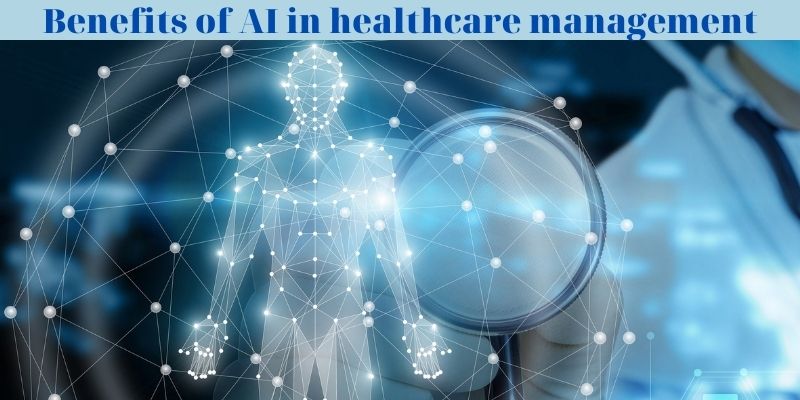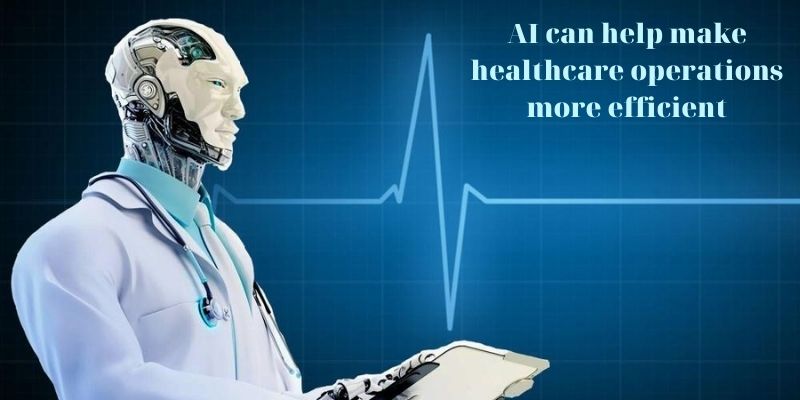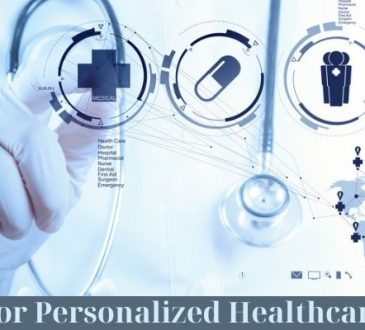The 5 Best Benefits of AI In Healthcare Management
Both patients and healthcare systems gain from the use of AI in healthcare management, which ranges from answering patient questions to assisting with procedures and creating new medications. In this article, tipfoodss.com will discuss The 5 best benefits of AI in healthcare management.
Contents
Benefits of AI in healthcare management
The artificial intelligence (AI) healthcare market, estimated at $11 billion in 2021, is anticipated to reach $187 billion in value by 2030, per Statista. Because of this enormous growth, the way hospitals, pharmaceutical and biotechnology firms, medical providers, and other players in the healthcare sector operate is expected to undergo significant changes.

Improved machine learning (ML) algorithms, more data access, more affordable technology, and the availability of 5G have all helped to increase the use of AI in the healthcare sector and quicken the speed of development. Health records, clinical trials, and genetic data may all be sorted through and analyzed by AI and ML technologies far more quickly than by humans.
AI can help make healthcare operations more efficient
AI in healthcare management is being used by healthcare organizations to increase the effectiveness of a variety of activities, from patient care to back-office work:
- Administrative workflow: Administrative work takes up a lot of time for healthcare staff. Many of those repetitive duties can be completed by AI and automation, freeing up staff time for other pursuits. For instance, dictating notes hands-free allows doctors and other caregivers to spend more time directly interacting with patients. AI computer-assisted documentation can offer clinicians recommendations to ensure that patient records are as complete as feasible. Accurate coding, departmental information sharing, and billing can all be aided by AI.
- Virtual nursing assistants: According to one survey, 64% of patients feel comfortable using AI to have 24/7 access to the solutions that support nurses offer. AI virtual nursing assistants, which are chatbots, apps, or other interfaces driven by AI, can assist patients in making appointments with doctors, forward reports to surgeons, and answer queries about prescriptions. By relieving clinical personnel of routine monitoring and scheduling duties, they are free to devote more time to patient care, where human judgment and contact are most important.
- Dosage error reduction: AI can help spot mistakes made when a patient self-administers medication, improving patient health outcomes and lowering hospitalizations and healthcare expenses. One illustration comes from a research published in Nature Medicine that discovered up to 70% of patients do not take their insulin as directed. A device that runs in the background of the patient (much like a Wi-Fi router) can detect faults in how the patient uses an insulin pen or inhaler using an AI system of wireless sensing.
- Safer surgeries: AI sometimes enables doctors to perform open surgery instead of performing surgery in confined locations. Robots with AI capabilities can work around delicate organs and tissues, minimizing blood loss, infection risk, and surgical pain. In comparison to conventional surgery, robotic surgery frequently results in less scarring and quicker recovery.
- Fraud prevention: Fraud in the healthcare sector costs $380 billion annually and drives up medical premiums and out-of-pocket payments for customers. Utilizing AI can assist in identifying unusual or suspicious patterns in insurance claims, such as billing for pricey services or procedures that were not rendered, unbundling (the practice of billing for a procedure’s individual steps as separate procedures), and performing pointless tests in order to receive insurance payments.

AI in healthcare organizations can mean better health monitoring and preventive care
As fitness and health monitors become more popular, more people are using programs that track and analyze information about their health. These users can share real-time data sets with their doctors to monitor health issues and trigger alarms in the event of problems.
Large data sets can also be analyzed by AI solutions, such as big data applications, machine learning algorithms, and deep learning algorithms, to support clinical and other decision-making. Additionally, AI can identify and monitor infectious disorders including COVID-19, tuberculosis, and malaria.
IBM and AI in healthcare management
Patients don’t want to (or are unable to) wait on hold when they need assistance. Help isn’t always available instantly or around-the-clock due to the limited resources of healthcare institutions; even little delays can lead to irritation and feelings of isolation or to the deterioration of certain conditions.

IBM Watsonx Assistant AI in healthcare management chatbots can assist physicians with two tasks: directing their time where it should be directed and enabling patients who call to obtain prompt responses to basic questions.
The IBM Watsonx Assistant uses conversational AI to interpret inquiries, find the best answers, and execute transactions. It is built on deep learning, machine learning, and natural language processing (NLP) models.



